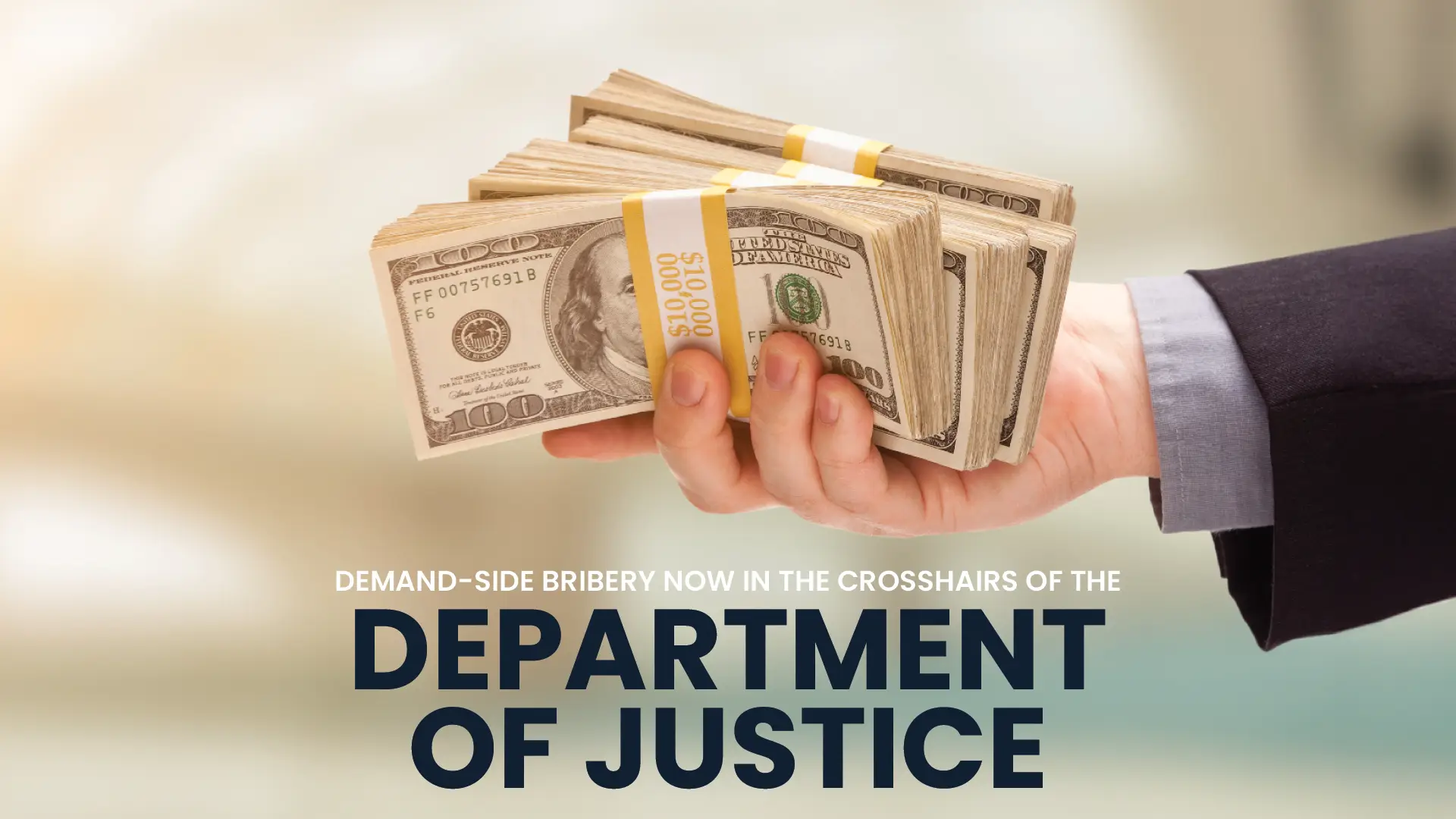22 February, 2024
Demand-Side Bribery Now In The Crosshairs Of The Department of Justice
In: Client Alert
Comments: 0

Article By Kristopher Keys and Anthony Schumann of the Business Risk Division
The U.S. Government recently enacted the Foreign Extortion Prevention Act (FEPA) as an element of the National Defense Authorization Act for FY2024. FEPA enjoyed bi-partisan support and advances the policy objective of criminalizing "the demand side of bribery by foreign officials" articulated in the U.S. Strategy on Countering Corruption (December 2021). FEPA makes it illegal for any foreign official to "corruptly demand, seek, receive, accept, or agree to receive or accept" a bribe from any U.S. citizen, company or resident in exchange for official action in connection with obtaining or retaining business. Any person who violates FEPA will face a $250,000 fine - or treble the value of the bribe - and up to 15 years in prison.
Companies with international operations, international supply chains or third-party intermediaries representing their interests in foreign countries need to pay attention to the new law for at least two reasons. First, businesses should expect the Department of Justice (DOJ) to pursue more holistic prosecutions of all individuals and entities involved in global bribery schemes. U.S. companies and their boards are fully aware of the robust enforcement of the Foreign Corrupt Practices Act (FCPA), which makes it illegal for persons to offer, promise or provide a bribe to foreign officials - i.e., the supply side of bribery - to obtain or retain business. FEPA, however, fills a gap noted by Transparency International U.S. and affords DOJ a critical tool to confront corruption at its source - i.e., the foreign official who demands or accepts a bribe - without reliance on foreign governments to prosecute these individuals. Indeed, the law requires DOJ to annually produce a report regarding five aspects of FEPA enforcement to the Judiciary Committees of both the House of Representatives and the Senate, and to publicly post the report on the DOJ website.
Second, companies need to reassess their global anti-bribery and anti-corruption policies, third-party due diligence procedures, training and investigation protocols to ensure agents and employees immediately escalate any such interactions with foreign officials. The first line of defense must be attuned to any improper demands from foreign officials and know whom to call to report concerns. Companies need to promptly investigate these allegations and consider voluntary self-disclosure to DOJ and other enforcement authorities, if warranted by the facts and circumstances.
Members of QPWB's Business Risk Division can advise your organization on the design and implementation of anti-bribery and anti-corruption program elements, deliver training to relevant executives and other personnel, conduct independent investigations and provide counsel relative to interfacing with enforcement authorities.
This client alert is provided by Quintairos, Prieto, Wood & Boyer, P.A., and its affiliates for educational and informational purposes only. It is not intended and should not be construed as legal advice. This document is considered advertising under applicable state laws.




